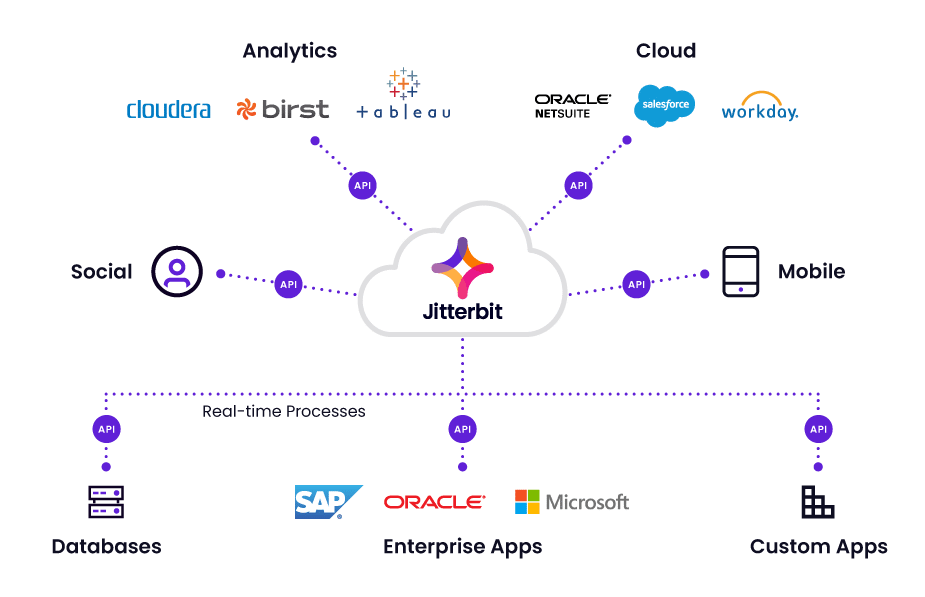Seamless Connectivity with API Integration

What is API Integration?
API Integration has become a cornerstone of modern software development and digital transformation. API, or Application Programming Interface, serves as a bridge allowing two or more software systems to communicate and share data seamlessly. This integration simplifies processes, enhances user experiences, and enables businesses to achieve greater efficiency.
An example of API Integration is when a payment gateway communicates with an e-commerce platform. Through the integration, users can make payments without leaving the website, providing a smooth and secure transaction experience.
Why is API Integration Important?
In today’s interconnected world, businesses rely on multiple software solutions to manage operations. API Integration enables these systems to work together harmoniously, eliminating silos and promoting efficiency. Here are some reasons why API Integration is crucial:
-
Improved Automation: It reduces manual tasks by automating workflows across platforms.
-
Enhanced User Experience: Provides a seamless and unified experience for users.
-
Scalability: Enables businesses to grow by easily connecting new tools and services.
-
Data Accuracy: Ensures that data shared across systems is consistent and accurate.
By embracing API Integration, businesses can streamline operations and stay competitive in an increasingly digital marketplace.
Types of API Integration
1. System-to-System Integration
This type involves connecting internal systems within an organization. For example, integrating an HR system with payroll software ensures that employee details are updated automatically.
2. Third-Party Integration
Third-party API Integration connects external services to your system. Popular examples include social media login buttons, payment gateways, and analytics tools.
3. Cloud API Integration
Cloud integrations connect on-premises systems to cloud-based services, enabling hybrid workflows. For example, integrating CRM software with cloud storage ensures access to customer data anytime, anywhere.
4. IoT Integration
With the rise of IoT devices, API Integration allows gadgets like smart thermostats and wearables to connect with applications and share data in real time.
Benefits of API Integration
1. Streamlined Business Processes
API Integration automates repetitive tasks, freeing up valuable resources and reducing operational costs.
2. Improved Customer Satisfaction
Integrated systems provide users with faster, more reliable services, enhancing their overall experience.
3. Faster Time-to-Market
With pre-built APIs, businesses can quickly integrate functionalities and launch products faster.
4. Better Data Sharing
Integration ensures data consistency and improves decision-making through accurate insights.
Challenges in API Integration
While API Integration offers numerous advantages, it’s not without challenges:
-
Compatibility Issues: Ensuring APIs from different providers work together can be complex.
-
Security Concerns: Proper authentication and encryption are crucial to protect sensitive data.
-
Maintenance: APIs require ongoing updates and monitoring to ensure compatibility with evolving technologies.
-
Documentation: Lack of clear documentation can make integration more time-consuming.
Best Practices for API Integration
1. Choose the Right API
Selecting an API that aligns with your business goals and technical needs is essential. Consider factors like scalability, ease of use, and documentation quality.
2. Prioritize Security
Implement robust security measures like OAuth, SSL, and API keys to safeguard data.
3. Test Thoroughly
Conduct rigorous testing to identify and resolve potential issues before deployment. API Testing ensures the integration functions as intended.
4. Monitor Performance
Use monitoring tools to track API performance and ensure optimal functionality.
5. Maintain Documentation
Keep detailed documentation to assist developers and ensure smooth updates in the future.
API Integration in Action
E-commerce Platforms
APIs connect inventory systems, payment gateways, and shipping providers, creating a seamless shopping experience for customers.
Healthcare Industry
API Integration enables healthcare providers to access patient records, schedule appointments, and process insurance claims efficiently.
Travel and Hospitality
Travel platforms integrate APIs to connect airlines, hotels, and car rental services, offering customers a one-stop-shop solution.
The Future of API Integration
As technology evolves, API Integration will become even more integral to business operations. Emerging trends like AI-driven APIs, blockchain-based integrations, and API marketplaces will further enhance its capabilities. Businesses that invest in API Integration today will be better positioned to adapt to future technological advancements.
Conclusion
API Integration is the backbone of modern digital ecosystems, enabling seamless connectivity and improved efficiency. By leveraging the power of API Integration, businesses can enhance user experiences, streamline operations, and stay ahead of the competition. Whether it’s connecting internal systems or integrating third-party services, API Integration is essential for success in today’s fast-paced digital world.
- Art
- Causes
- Crafts
- Dance
- Drinks
- Film
- Fitness
- Food
- الألعاب
- Gardening
- Health
- الرئيسية
- Literature
- Music
- Networking
- أخرى
- Party
- Religion
- Shopping
- Sports
- Theater
- Wellness


